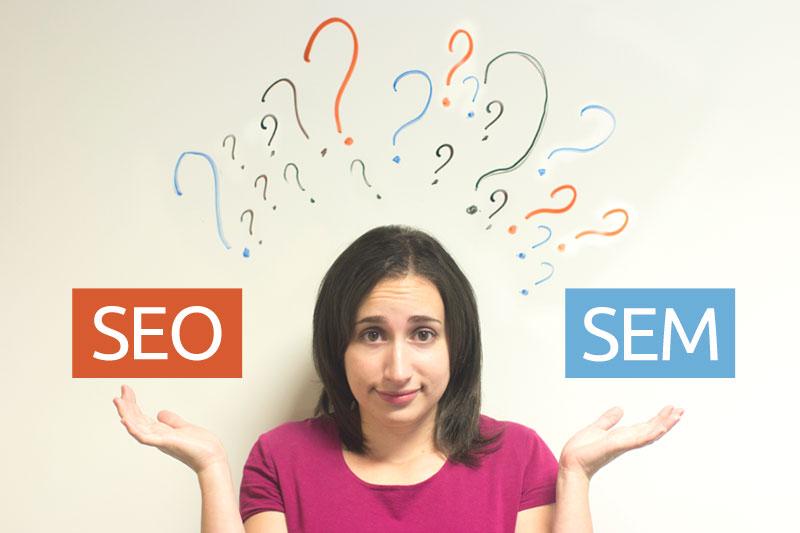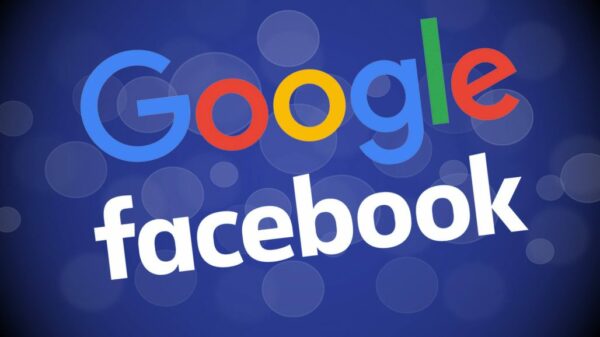What is the difference between SEO vs SEM (GSN)? Which one comes first?

What is Search Engine Marketing (SEM)?
Search Engine Marketing refers to efforts to promote a website through search engines to offer its services and products, either through paid efforts or organic (unpaid) strategies.
What is Search Engine Optimization (SEO)?
Essentially, Search Engine Optimization is part of Search Engine Marketing. SEO works to increase a website’s ranking on search engine results pages (SERPs) through organic searches by optimizing the use of keywords on your website.
Read More: How Important is SEO? Here are the Benefits of SEO for Businesses and UMKM
There are two main components of SEO:
1.On-page Optimization
On-page SEO (or on-site SEO) refers to all the adjustments you make directly on your website or blog to make it more search engine-friendly. Examples of this include the use of selected keywords in tags and meta descriptions, proper URL formatting, correct use of headings (H1, H2, etc.), image optimization, website loading speed, and many other elements.
2.Off-page Optimization
Off-page SEO focuses on promotional activities that happen outside of your website, aiming to boost your site’s reputation on search engines. To simplify, imagine this as a ranking system where websites with the most “votes” appear highest in search results. In this context, “votes” refer to the number of external links pointing to your website, whether from other websites, social bookmarking, social sharing, and so on.
I will use the term SERP in this article. For those who are unfamiliar with the term, SERP stands for Search Engine Results Page, meaning the results a search engine displays based on the keywords entered into the system.
What’s the Difference Between Google Search Network (GSN) and Google Ads?
Google Adwords and Google Ads are the same. Previously, this advertising platform was known as Google Adwords, but in mid-2018, Google rebranded it as Google Ads. Google Ads has two advertising modes:
- Google Search Network (GSN)
- Google Display Network (GDN)
In this article, for ease of reading, I will refer to Google Search Network (GSN) simply as Google Ads.
Which Should You Use First: SEO or GSN?
Now that you know the difference between GSN and SEO, I will explain in more detail based on my experience.
Google Ads = Quick, Organic SEO = Long-lasting
Using Google Ads, you only need to set up a campaign, and your ads will be displayed in less than 30 minutes. On the other hand, SEO strategy takes a longer time. When a new article or page is published on your site, using certain strategies, you may see it in the top 10 Google results within less than 2 months, but typically a new article or page stabilizes in the top 10 in 2 to 6 months, and this can take longer if you’re targeting highly competitive keywords.
Google Ads = Larger Reach, SEO = All Pages Are Landing Pages
With Google Ads, you can target thousands of keywords simultaneously for specific pages (landing pages). However, with SEO, every page on your site is essentially a potential landing page. The more relevant and quality pages you have, the more potential customers you can attract.
Google Ads = Relatively Easier to Learn, SEO = Not Standardized and Full of Assumptions
For those who want to do Google promotion themselves, learning Google Ads is easier because Google provides a learning platform on Academy for Ads and even offers certification programs. This is different from SEO, where the guidelines are never fully published. Google only provides one SEO guide on its website, and until today, Google has not disclosed how the ranking algorithm in SERPs works. SEO consultants generally apply what they believe works at the moment. The challenge is that Google frequently updates its algorithm to better index relevant sites and fight against SEO consultants using “BlackHat SEO” methods. You need to be more cautious when using third-party SEO services.
Google Ads Is for Promotion, While Organic SEO Builds Trust
This is essentially the difference between Selling vs Branding. With SEO, you can’t easily change your listing description, whereas with PPC, it is much easier to do so. Therefore, the main goal of SEO is focused on long-term branding, while Google Ads is aimed at quick selling or gaining new customers quickly (awareness). Statistically, conversions from organic visits (SEO) tend to be more reliable and sustainable.
Which Is Cheaper or More Expensive?
Many people prefer SEO because getting into the top 10 is free, while Adwords is a paid advertising method. However, this is not entirely true because SEO still incurs costs, such as SEO services, article writing, proxies, software, etc. Even if you manage the entire SEO campaign yourself, you are still “paying” with your time and content creation. SEO practitioners need to consistently optimize the site using specific techniques (and subscription-based tools) over time until your site starts to move up to the top 10.
How Google Ads and SEO Can Complement Each Other
Google Ads can help you test the performance of your site, especially when launching a new site where you need data to see how it performs. Google Ads can do this without waiting for months for organic traffic to come in.
Google Ads can also help you find relevant keywords for your site through a campaign called Dynamic Search Ads, where Google automatically searches for relevant keywords in search queries that match your site.
SEO can also help you identify keywords that you can promote, forming part of your Google Ads reports.
It’s All About Probability in SERP…
If you’re looking for a simple answer on which strategy to choose, I would generally suggest “try both” because each has its strengths and weaknesses, but the goal is the same: to acquire (read: fill) the search screen of potential customers with your business information. The idea is simple: the more you fill their screen with information about your business, the more they get to know you.
On the regular search results page (without Google Ads), Google typically shows the top 10 search results (the “Top 10 Google”).
If you only use SEO, your potential visit ratio is 1/10 (10%). However, through Google Ads (Adwords), you have the opportunity to increase this ratio. If a particular keyword you target is low in competition, your ratio could be 2/11 (18%). Furthermore, if you use all Google Ads features, such as Site Links, the ratio can be even larger. Imagine this on a smaller smartphone screen – your information could be displayed much longer.
What if Budget Limitations Force You to Choose One?
Use SEO if:
- Your focus is not on short-term sales
- You choose not to rely on ongoing monthly costs
- Your market is not easy for online transactions (e.g., Forex)
- Your product is difficult to promote via PPC, such as supplements, politics, MLM, etc.
Use PPC if:
- You want to get customer responses quickly
- The company is focused on sales
- A new product is being launched, and you want to test the market
- Your main competitors are using PPC. Yes! Because when it comes to speed, PPC is the winner. The online market is a highly competitive arena, where your target market is bombarded with many marketing messages. If your competitors are already using PPC, you need to respond quickly because both of you are targeting the same market.
So, what do you prefer: SEO or Google Ads?
If you need Google Ads/PPC or SEO services for your business, feel free to contact us at 021-5324093/94 or email us at info@doxadigital.com. Our sales team will get in touch with you shortly. We offer free consultations and fast research directly at your office. If you’re located outside of the Jabodetabek area, we can conduct an online conference.





